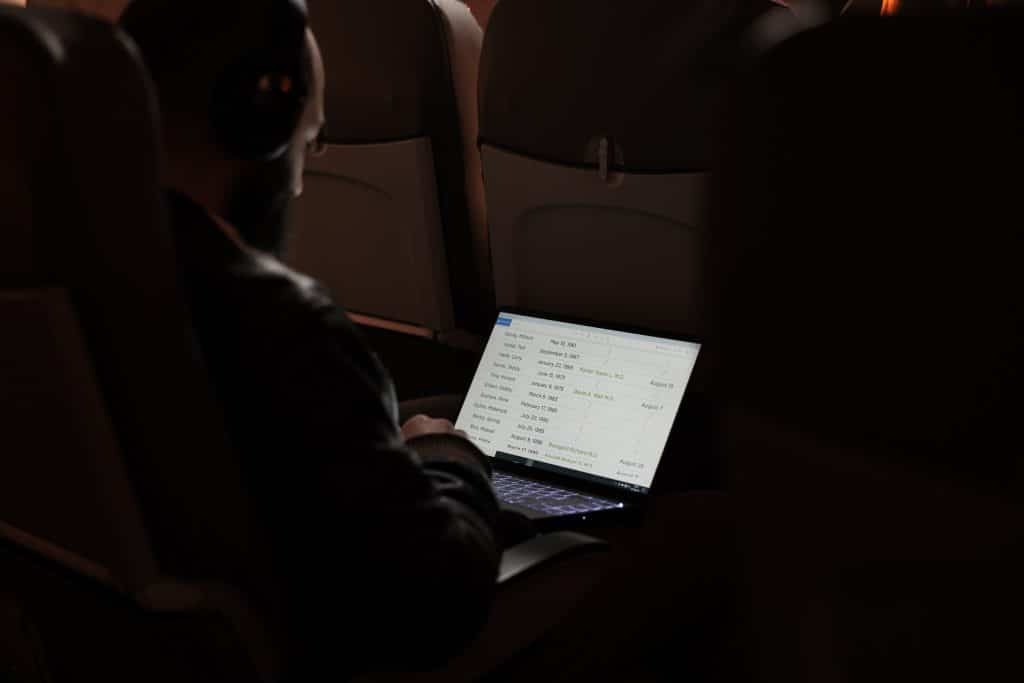Business travel hacking: Maximize rewards and save money

Anúncios
Business travel hacking is the art of turning every corporate trip into an opportunity to earn rewards, upgrades, and perks.
Anúncios
Strategically using company-paid flights, hotels, and meals, savvy travelers can maximize value while minimizing personal costs.
It’s not just about collecting points, it’s about planning ahead, understanding loyalty programs, and leveraging company policies to your advantage.
With the right approach, every business trip can become a step toward smarter, more rewarding travel.
Understanding the basics of business travel hacking
Business travel hacking is about optimizing every corporate trip to generate maximum personal rewards.
Anúncios
It builds on general travel hacking principles but focuses on company-paid expenses.
The strategy revolves around leveraging credit card rewards, airline miles, and hotel loyalty points.
Business travelers often spend more, offering bigger opportunities to accumulate rewards.
Credit Cards and loyalty programs
Credit cards and loyalty programs are the backbone of business travel hacking. Selecting cards with bonus categories for flights, hotels, and dining boosts reward accumulation.
Sign-up bonuses alone can fund personal trips. Understanding program nuances ensures every transaction contributes to your travel hacking goals.
Strategic Credit Card selection
Prioritize cards with elevated reward rates on business-related spending. Look for sign-up bonuses, travel credits, and elite benefits.
Airline loyalty programs
Join airline loyalty programs, even if your company dictates a carrier. Co-branded cards provide perks like lounge access and free checked bags.
Hotel loyalty programs
Hotel programs offer points, elite status, and exclusive benefits. Sticking to one chain can accelerate status progression and perks.

Navigating company policies and reimbursements
Success in business travel hacking requires knowing your company’s expense rules. Personal points are often allowed, but policies differ.
Transparency is key. Adhere to company policies to maximize rewards without risking compliance.
Advanced strategies for maximizing airline rewards
Airline rewards are central to business travel hacking. Beyond miles, advanced strategies involve alliance partnerships, elite benefits, and complex itineraries.
Even if a specific airline is required, alliance networks expand redemption opportunities for aspirational travel.
Optimizing elite status and alliance perks
Elite status unlocks priority boarding, upgrades, lounge access, and bonus miles. Status matches and alliance perks increase global travel benefits.
Upgrade certificates should be used strategically, particularly for long-haul international flights.
Maximizing miles redemption for high-value flights
Intelligent redemption is key. Focus on business or first-class tickets and exploit stopovers or open-jaw itineraries to maximize value.
Hotel hacking strategies for the business traveler
Hotel stays are ideal for business travel hacking, offering points, elite status, and free night certificates.
Consistency is essential. Choosing one or two major chains accelerates elite status and unlocks perks like suite upgrades and executive lounge access.
Accelerating points and elite status progression
Use hotel credit cards for instant elite status, welcome bonuses, and bonus points. Promotional offers and meeting/event bookings boost earnings further.
Optimizing free night certificates and points redemptions
Use free night certificates at high-cost or luxury hotels. Redeem points during peak or off-peak times for maximum value.
Leveraging expense reimbursements and company cards
Managing expense reimbursements is core to business travel hacking. Using personal cards for reimbursed expenses accelerates points accumulation.
Personal cards vs. Corporate cards: A strategic choice
Personal cards typically maximize rewards, while corporate cards simplify reconciliation. Understanding your company’s policy is crucial.
Mastering expense reporting for maximum payouts
Prompt and organized reporting ensures quick reimbursement and maximizes reward accumulation. Align expense categories with credit card bonus categories.

Beyond flights and hotels: Diversifying travel hacking efforts
Opportunities extend to ground transportation, dining, and incidentals. Every expense can earn points or miles for personal travel rewards.
Rental cars and ground transportation optimization
Enroll in rental loyalty programs and use points-earning cards for ride-sharing services. Every mile driven is a business travel hacking opportunity.
Dining, Per Diems, and Miscellaneous expenses
Use points-earning cards for dining and per diem surpluses. Airport parking, baggage fees, and Wi-Fi are also reward opportunities.
Ethical considerations and long-term sustainability
Ethics are vital in business travel hacking. Follow company rules, maintain integrity, and avoid shortcuts that risk employment.
Maintaining transparency and compliance
Understand and follow expense and travel policies. Misrepresentation or overspending violates trust.
Balancing personal gain with company objectives
Align rewards strategies with corporate goals. Choosing hotels or airlines that maximize points should still respect company policies.
By adhering to ethical standards, business travel hacking becomes a sustainable and profitable long-term practice.
| Key Strategy | Brief Description |
|---|---|
| 💳 Strategic Credit Cards | Utilize high-reward personal credit cards for reimbursable business expenses. |
| ✈️ Maximize Loyalty Programs | Enroll in and consistently use airline and hotel loyalty programs to earn points and elite status. |
| 📊 Master Expense Reporting | Submit expenses promptly and accurately to ensure quick reimbursement and ethical compliance. |
| 💡 Diversify Earning | Look beyond flights/hotels for points: rental cars, dining, and other miscellaneous business expenses. |
Frequently Asked Questions (FAQ) about Business Travel Hacking
Yes, travel hacking for business travelers is generally ethical as long as you adhere strictly to your company’s travel and expense policies. It involves leveraging existing legitimate expenditures to earn personal rewards, not creating false expenses or making decisions that are not in the company’s best financial interest. Always prioritize compliance and transparency to ensure ethical conduct.
Many companies allow employees to use personal credit cards for business expenses, provided expenses are properly documented and submitted for reimbursement. This is often the most lucrative way to earn personal rewards. However, always verify this policy with your employer first. Some companies require the exclusive use of corporate cards, which may limit personal points accumulation.
Even if your company books your hotel, you can usually earn loyalty points and elite night credits by ensuring your hotel loyalty program number is added to the reservation. Most major hotel chains allow this, even for third-party bookings, as long as it’s a valid paid stay. Always confirm with the hotel upon check-in that your loyalty number is attached.
The best redemption strategy is typically for high-value aspirational travel, such as international business or first-class flights, or luxurious hotel stays, where the cash cost would be prohibitively high. Avoid redeeming for low-value items like merchandise or simple cashback. Look for “sweet spots” in award charts and consider leveraging stopovers or open-jaw itineraries for maximum value.
Elite status is incredibly important for business travel hacking. It provides tangible benefits like upgrades, lounge access, bonus points on spending, and priority services, significantly enhancing your travel experience. Status matches/challenges and co-branded credit cards can fast-track you to elite status, unlocking these valuable perks much sooner and amplifying your reward accumulation.





